Faith to Tackle Life’s Biggest Challenges: Devon Still and Keni Thomas
Devon Still and Keni Thomas have braved life-or-death moments. Now they strive to set an example for others and show them how they trusted God for His life-giving presence. First up, Devon Still is an All-American defensive end who spent his NFL career playing for the Cincinnati Bengals, Houston Texans, and New York Jets. In 2014, just weeks after his faith in God was re-ignited, Devon discovered Leah was diagnosed with stage 4 cancer. He recounts a pivotal moment in a hospital chapel that changed the way he viewed his new faith and his daughter’s disease. Our next guest, country music artist, and former Army Ranger Keni Thomas, was impressed with a strong sense of duty to serve in the military. In 1993 he was deployed to Somalia, where he found himself entrenched in the horrific events portrayed in the book and movie Black Hawk Down. Today Keni is a motivational speaker who draws on his military experience to inspire audiences worldwide. He reflects on the fateful day in Mogadishu and describes the work he does now to help veterans transition back into civilian life, while demonstrating how gratitude can drastically change your perspective.
Devon Still: As we started going throughout this battle with cancer, I started to gain a closer relationship with God because I realized He had already shaped me and gave me that playbook that I needed for Leah to beat this disease. So just to see the work that He was doing in our lives, the work that He was doing other people’s lives and how He was using us to make an impact on the world—I’ve never [seen] God move that way before in my life. And there’s nothing—like, absolutely nothing—I can go to in my life that can strip me of my faith that I have in God.
”There’s nothing—like, absolutely nothing—I can go to in my life that can strip me of my faith that I have in God.” – Devon Still
Faith to Tackle Life’s Biggest Challenges: Devon Still and Keni Thomas – Episode #129
Narrator: Welcome to the Jesus Calling Podcast. Today’s guests have braved life-and-death moments and now strive to set an example for others as they trusted God for His life-giving presence: former NFL football player Devon Still and former Army Ranger and Black Hawk Down survivor Keni Thomas.
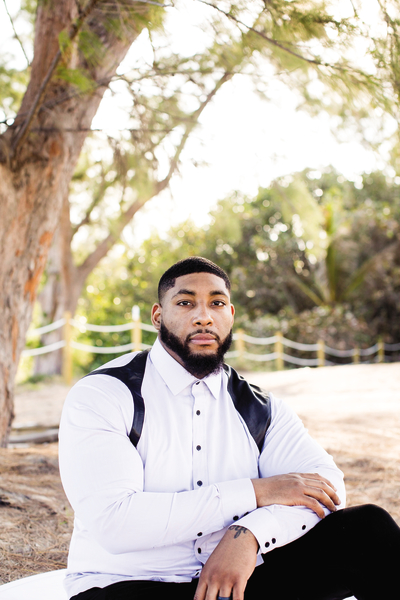
First up, Devon Still is an All-American defensive end who spent his NFL career playing for the Cincinnati Bengals, Houston Texans, and New York Jets. In 2014, Devon and his four-year-old daughter Leah captured hearts all over the world as they shared their journey through Devon’s Instagram account. Devon also gives us a glimpse into his early years, a rocky childhood, and how he found a real relationship with God in adulthood. Within just weeks of his faith being re-ignited, Devon discovered Leah was diagnosed with stage 4 cancer. He recounts a pivotal moment in a hospital chapel that changed the way he viewed his new faith and his daughter’s disease.
Devon Still: My name is Devon Still. I’m a former professional football player. I grew up in Wilmington, Delaware. And I attended the Penn State University.
Now I spend my time traveling the world giving motivational talks, inspirational talks, teaching people my playbook on how they can get back into the game and sharing my story about my faith and how God really helped me overcome every obstacle that I faced in my life.
Learning from a Faithful Grandmom
When I was growing up, God didn’t really play a big part of my life. I lived with my mom and dad up until I was in the third grade, and they ended up getting a divorce. Neither one of them really went to church or had a solid solid foundation in God.
I used to go to church with my grandmom all the time, up until I was about in fourth grade, and then she moved to Michigan. Once she moved, it’s like God was taken out of my life. And I really wasn’t reintroduced to Him until my college years, when I was facing a lot of struggles with my injuries. I really leaned on God to help me through those tough times. I felt isolated most of the time because nobody was there with me, and I was away from my family. So I spent a lot of nights just getting to know God and talking to Him so that He could help me through those trying times.
I got to know God through just prayer. I really wasn’t studying the Bible or studying the words. I remember different things that I would hear in church, when I was going to church with my grandmom when I was a child. But just sitting down and just having a conversation with God like I would talk to my friends just about the things I was struggling with in my life and the things I needed help with is how I really built a relationship with God.
Realizing His “Why” Was Bigger Than His Struggles
It took me a long time to realize I had talent in football. When I first started, I was absolutely terrible. I often thought about giving up football, but because of my dad and the way he really parented us, he made me stick it out. Whatever you put your heart into, whatever you say that you want to do, you have to give it everything you have. So he made me continue to play football. I started to develop a love and a passion for it, not just for the sport but the ideal of teamwork and working with people from all different aspects of life to reach a common goal.
“Whatever you put your heart into, whatever you say that you want to do, you have to give it everything you have.” – Devon Still
It was probably around my junior year that I really felt like I had a shot of going to the next level, going to play D1 football. So I just gave everything I had to the sport. And my junior/senior year, I ended up getting over 50 scholarships to almost every college in the country to play football.
When I got it was just . . . I was overwhelmed because nobody in my family or nobody in the community has grown up ever experienced anything like that. But you know, I had a chance to really change my family dynamic and show people what’s possible if you give it something your all.
When I was growing up, when I first started playing sports my parents attended every single game that I had from when I was playing basketball, football—just every sport that I played in. And with Penn State only being three and a half hours away, I wanted to keep that same feeling where I could look up in the stands and see my parents, because it made me play harder. So I decided to go to Penn State so that they could see me play at the next level every weekend.
When I first got to Penn State, I had a chance to really play as a true freshman. But one practice we had, I ended up tearing my ACL and my MCL. So I had to sit out my first year after getting surgery, just to rehab and get my leg back to the right strength.
When I made it back the following year, around the same time in training camp, I ended up breaking my leg again during one of our scrimmages. So I had to sit out another year due to injuries.
I really start to lose faith in myself. I started to lose faith in God, really, and I saw people around me start to lose faith in me. But I just stuck it out because I felt like my why was bigger than the struggles I was going through.
“I felt like my why was bigger than the struggles I was going through.” – Devon Still
I came up in an environment where it was really stricken with a lot of drugs and violence, and I saw a lot of things that no kid should have to see when I was growing up. I made a decision that I was going to go through that pain today to make sure that the people I loved and cared about didn’t hurt tomorrow. I wanted to be able to raise my family in a better environment than I grew up in.
Reaching the NFL and Following God’s Call
My first two years in the NFL started off like my first two years in college, where I was struggling with injuries. My first year I did pretty well. I had a breakout game, the 8th game of the season, where I had eight tackles and two tackles for loss.
But the following year I ended up struggling with injuries, and I dislocated my elbow during the game against the Lions. I had to be out of football for five weeks as I rehabbed my arm to regain its strength and mobility. When I got back two games later, I ended up blowing out my back against the Steelers, so I had to get back surgery and I was out for the rest of the year. But a week after getting that back surgery, I got diagnosed with blood clots in my lungs, and I had to get rushed to the hospital where they told me if I didn’t make it there that night that I probably wouldn’t have made it to the morning.
I remember the doctor telling me about my blood clots, that I probably wouldn’t be able to play football again because if I ever got hit or I got a cut on the football field, I may bleed out because of the blood thinners that I was on. So she put me on blood thinners and told me I had to come back in six months to see if the blood thinners worked.
So it just seemed like everything in my life was falling apart at that moment. And that’s when my wife Asha let me know that maybe when we needed to get back into church and get a better foundation in faith because maybe that was God calling us to Him. So we decided to get back into church.
And it was a couple of days before that six months was up that I had to go back to the doctors. I remember the pastor saying, “Something amazing, something special is going to happen to somebody in the next couple of days.” And when he said that, it hit my heart because he didn’t know about my situation, but I knew about my situation. I knew how big this moment was going to be for me that week because I thought I was going to lose everything that I worked so hard for since I was 13. So I really held on to his word, and I just prayed that whole week that he was speaking to me. He was talking to my situation.
A Tragedy Turns into a Battle with a Purpose
 But a couple of weeks after that, I decided to take Leah down to Disney World because I had never been there and I wanted her to experience it. It was amazing because everybody was so happy. It was like we were living in a different world. I really couldn’t believe it. I felt like a little kid again.
But a couple of weeks after that, I decided to take Leah down to Disney World because I had never been there and I wanted her to experience it. It was amazing because everybody was so happy. It was like we were living in a different world. I really couldn’t believe it. I felt like a little kid again.
Leah sat down in the middle of the street. And when I look back, I told her to get up and she just sat there with her legs crossed. She wasn’t moving. And I was kind of embarrassed at first, thinking, Why is she having a temper tantrum at Disney? Everybody’s supposed to be happy. What kid wouldn’t want to be here?
I went back out to Cincinnati to go to our training, and the following week was going to be Leah’s first dance recital from her dance class. I asked my coach if they could allow me to go back home because I wanted to be there to support her, just like my parents were always there to support me. I wanted her to be able to look up and see her dad there. They told me I could go ahead and go home to support her.
The morning of her dance recital, I stopped at a red light and my phone started to ring. And when I answered it, it was Asha’s grandmother. And she had told me that Leah wasn’t feeling good and she wasn’t eating any of her food, that I needed to set her up with a doctor’s appointment. I asked them where they were, and she told me that they were at the IHOP. And it was crazy because I was right across from where I was stopped at the red light.
So when I walked into the restaurant, Leah had her head down on the table and she wasn’t eating, she wasn’t talking. And I remember asking her if she was okay, and she just shook her head no. So I decided to pick her up and take her to the urgent care that was across the street from the restaurant, hoping they were going to tell us that she had an ear infection or something like that and they would give her some type of medicine to help her feel better so she can make it to her dance recital that night. But when they started running tests on her at the urgent care, they didn’t find any evidence of an infection anywhere.
I started telling them about some of the leg pain that she was complaining about that I thought came from gymnastics, when she’d fallen off the balance beams, and that she would use when I would tell her to clean up the room. I would tell her to go clean a room and she’d say, “Oh, I can’t. My leg hurts.” So we didn’t really pay her any mind. We thought she was just trying to get out of doing her chores.
The doctor ended up touching her hip where I told him that she complained about the pain, and she jumped from the doctor. And when she jumped from the doctor, she jumped in such a way that you knew that she was really in pain, that something was wrong.
So they told us that they couldn’t do nothing else for her at the urgent care, so they sent us about a mile away to AI DuPont Hospital to get more testing.
And they decided to give her an MRI and a CAT scan. The tests were taking so long, and I knew from just all the injuries I faced in my life that MRIs and CAT scans only take about 45 minutes, but we were hitting the two hour mark. So I kind of prepared myself to hear the doctor say that she had cancer. I don’t know why I did that, but I just felt like they were going to come out and say it.
About 15 minutes after I told myself that, the doctor came out and told us that she had cancer.
My world just got flipped upside down. I didn’t really know what to do. I remember just going blank after the doctors said “cancer.” I snapped back to reality once they told us the doctor was going to go to the waiting room and tell Leah’s grandparents. And I just remember telling her no, that I didn’t want her to go tell them, that if they were going to hear something like this that I was going to go tell them.
I remember walking down the hallway to the waiting room, and I’m just nervous because I don’t know what I’m going to say and I’m having all these thoughts run through my mind.
And when I walk into the waiting room, I remember her grandmother and my dad just looking at me, and they knew something was wrong because it was written all over my face. And when I went to open up my mouth, I couldn’t get it out. I remember just falling to the ground crying, and my dad running over to me rubbing my back asking me what was wrong, to just tell him what was wrong. And I kept trying to say it. And eventually it came out and I just blurted out, “Cancer.”
I remember just seeing her grandmother cover her mouth and sprint out the room, and my dad just kept hugging me telling me it was going to be okay. But in my mind, I knew it wasn’t going to be okay.
I was just lost because, like I said, a couple of months before that I just took a walk of faith. I just decided to give my life to God. I thought my life was supposed to get easier, not harder. So I started off just blaming God, asking why He could do this to her, why He allowed this to happen to my daughter.
“I just decided to give my life to God. I thought my life was supposed to get easier, not harder.” – Devon Still
I remember talking to the pastor who baptized us, who came to the hospital I think two days after she was diagnosed, and I asked him how could this happen? I just gave my life to God. How could this happen? He sat there speechless. He didn’t really know how that could happen to her.
So for about a week, I was just confused on whether I should continue to have faith in God. Because if there was a God, He wouldn’t allow this to happen to a 4-year-old girl, for her to have a 50 percent chance of dying before she even had a chance of living.
There was a time where we went to church and they said, “If you want to feel God’s presence, all you have to do is ask for it.”
And I remember one night I decided to go down to the chapel in the hospital. I fell to the ground in that chapel, with snot and tears running down my face onto the carpet that I was kneeling on, and I just started asking God, “Why did this have happened to my daughter? Why does she have to go though this?” Begging Him to take the cancer out of her and to put it into me. And I remember just asking if He was there, if He was with us to just show me that He was there.
About five seconds after I said that, I remember every door in that room just shaking like it was an earthquake. I got so scared that I got up and I ran out the room, because I didn’t know what was going on. And to this day, I really regret getting up during that time because I felt like God was talking to me during that time, letting me know that we weren’t alone, that He was there with us.
“I felt like God was talking to me during that time, letting me know that we weren’t alone, that He was there with us.” – Devon Still
I remember going back to her room, and I just felt different. Right? Like, I was blaming God for allowing this to happen to my daughter. But I realized that because my daughter has stage 4 cancer, that she’s been living with this for a long time. So maybe it wasn’t God allowed this to happen to her, but He was allowing us to see what was wrong with her, to give us a chance for her to be healed.
I honestly don’t think that God is in the tragedy, but He’s in the healing of situations. A lot of people don’t get to experience God because once tragedy happens, they start to blame God instead of letting God do His work so you can see the true power of God. But once I took that approach, that that was God revealing to us that she had cancer, that He was giving us a chance to save her life, it was like our whole fight had changed. She now had a purpose, and we now had a new-found faith and confidence in her battle with cancer.
“I honestly don’t think that God is in the tragedy, but He’s in the healing of situations.” – Devon Still
Keeping Joy in the Hard Season
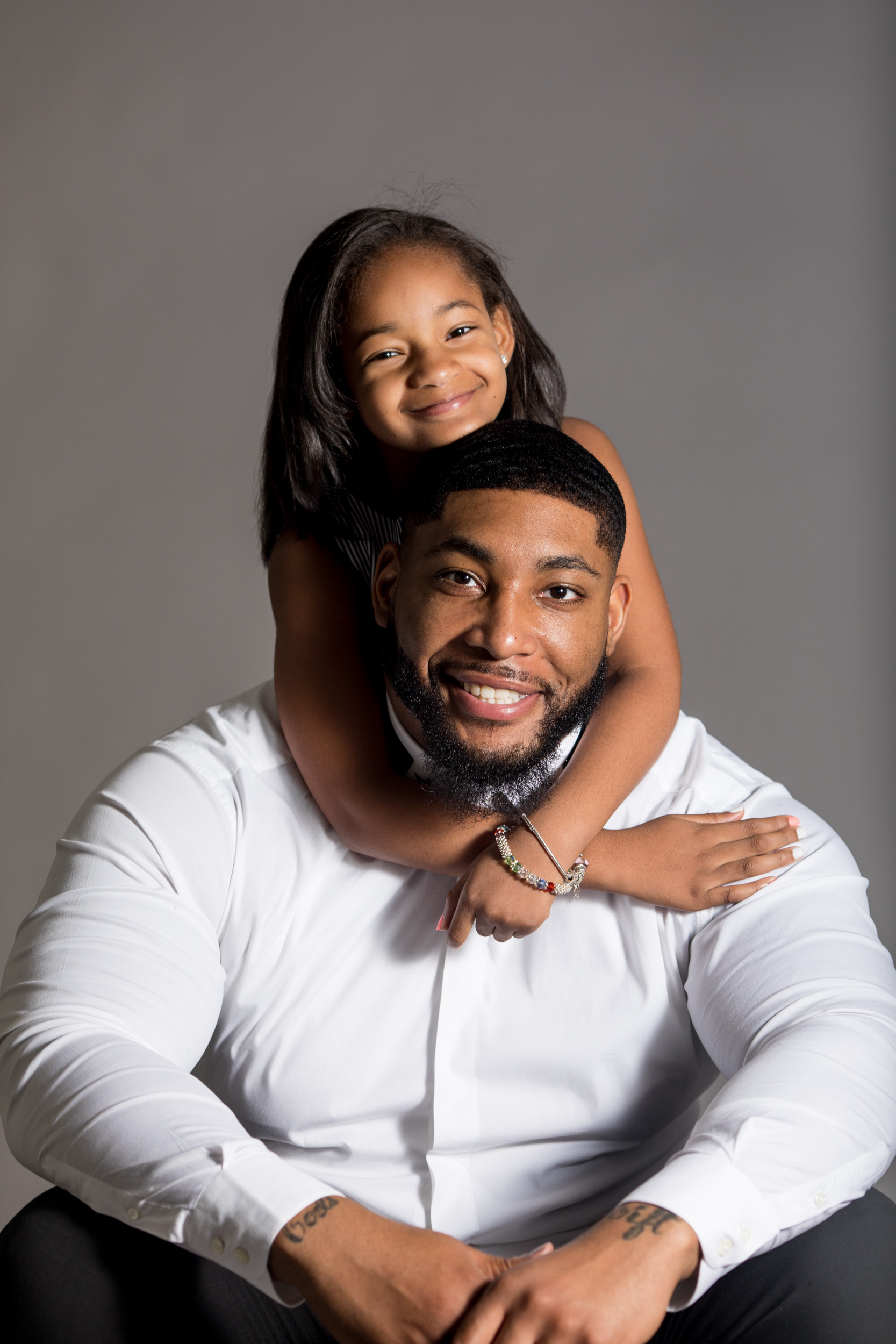 I spent about two weeks in the hospital with her when she first got diagnosed, where I never left the hospital because I just wanted to be by her side to hug her and kiss her and let her know it was going to be okay.
I spent about two weeks in the hospital with her when she first got diagnosed, where I never left the hospital because I just wanted to be by her side to hug her and kiss her and let her know it was going to be okay.
But I remember one night I had to go home to my wife’s apartment to get a change of clothes and just to get a breath of fresh air because I haven’t left the hospital in two weeks. And when I went to her house, there were people over there.
I remember sitting on a couch and somebody told a joke and everybody in the room—it was about eight people—everybody in that apartment broke out in laughter. And I remember laughing too, but something in my mind told me to stop laughing about five seconds after I initially started laughing. And I started to question myself, like, what did I think was so funny when I had my 4-year-old daughter in the hospital fighting death? How could I possibly be laughing in that moment?
I sat there and I started to think about a lesson that I learned when I was playing Little League football, when we were getting demolished in one of our games. We’d never really lost before, we were undefeated. We were having a great season. So everybody was walking around with their heads down. They were just frustrating and out of the game. And my Little League coach pulls us into a huddle, and he tells us that the moment that we stop having fun playing the game is the moment that we already lost.
In that moment, I promised myself that no matter what we were going through, no matter if Leah has stage 4 cancer or whether she only had a 50 percent chance of living, we weren’t going to allow cancer to steal our joy, to steal our fun. So I made sure in that moment that everything we did, every video that we posted on Instagram, we were showing people that we were having fun.
Teammates Don’t Leave Each Other Behind
When Leah got diagnosed, my first reaction was to retire from football because there was no way I was going to leave her in the hospital without me being by her bedside to let her know that she wasn’t alone. But the doctor walked into the room, and they told us that her treatment was going to cost close to a million dollars. I knew although I was in the NFL, I didn’t have a million dollars in my bank account. I was a second-year in the league.
I talked to the Bengals, and I realized that our insurance covered 100 percent of Leah’s treatment. So although I didn’t want to leave her side, I knew I had to make that sacrifice in order for her to have the best treatment to beat this disease. They told me to just take time in Delaware, to just be with Leah and get everything in order so that she had the best chance of beating cancer.
After we decided her treatment plan, I went back out to Cincinnati. I was falling apart out there because everything in me wanted to be with Leah. Like, I was physically in Cincinnati, but my heart and my mind was in Philadelphia where she was getting treated at. I wasn’t focused on football at all. I mentally wasn’t in meetings. I mentally wasn’t at practice. There were times where I just felt myself starting to cry as a play was going on. As we were going through different practices or we were going through games, I would be on the football field crying when I should have been focused on the guy that was in front of me.
I ended up getting released from the team, but they told me they were putting me on the practice squad so that I didn’t have the same responsibilities that come with being on the active roster, so that I can travel back and forth to Philadelphia to be with Leah to make sure everything was going well. And for them to do that, it was amazing because, like I said in my ESPY speech, there was nothing I could give the team at the moment because everything I had, I was giving to my daughter because I want her to beat this disease. So for them to stick by my side, it really helped us out a lot.
“There was nothing I could give the [Cincinnati Bengals] team at the moment because everything I had, I was giving to my daughter because I want her to beat this disease.” – Devon Still
I was on a practice squad for one week, and then they put me back up on the 53-man roster. And when they did that, they started to sell my jerseys and 100 percent of the proceeds went to Cincinnati Children’s Hospital for cancer research. And when within the first week, we sold more jerseys than have ever been so before in the NFL and for the Bengals. We eventually ended up raising $1.3 million that we donated to Cincinnati Children’s, where Leah had a chance to come up to Cincinnati for the first time after being diagnosed and presented the check to the hospital, which was . . . it was amazing because it really showed the power of going public with our story and how many families were going to be helped because we weren’t selfish in keeping this story to ourselves, and we used my platform of the NFL the right way.
God Never Gives Up on Us
 The best thing both Leah and Asha taught me was that I’m good enough.
The best thing both Leah and Asha taught me was that I’m good enough.
When you’re a NFL player, a lot comes with that: a lot of responsibility, a lot of notoriety. You’re put on a pedestal by people in society. And when you lose that sometimes you wonder who you are. You struggle with your identity. You wonder if the people around you really loved you for you or they loved you for the position that you were in.
Leah and Asha have always showed me that I’m good enough, that they don’t love me because I play football. They love me because the man I am. And to have two people in your life that support you and show you love no matter what, it’s amazing thing.
So every night before Leah goes to bed she always asks me to read her bedtime stories. It’s something I’ve been doing since maybe she was about 1 year old, where I will always read to her before she went to bed. And we read through so many books, I didn’t know if she had any more books in the house for us to read. I went through her treasure chest, and I just picked out the Jesus Calling [for Kids] book. I didn’t even put two and two together that I was about to do this podcast. It was like the book had just spoke to me because I’m trying to teach my daughter more about God and her faith, and I just felt like having these devotionals could really help her out.
So every night, we read two devotionals out of the book, and we just talk about them and see if she understands it and what it means to her. The other night, I read a devotional, the January 9th devotional, that really hit home [for me] and it hit home for Leah. She just started tearing up as we were talking about this, and it’s called “Never Give Up.” And it starts that:
“Nothing is impossible for God.” And that’s Luke 1:37.
And [the devotion] says:
I am always with you and for you I’m your biggest fan. When you decide to do something that fits My plans for you, nothing in heaven on earth can stop you. You may face some problems along the way to your goal—that is part of living in an imperfect world. But never give up! With My help you can conquer any problem.
But don’t just rush headlong toward your goal, trying to make things happen when you want them to. First come to Me. Ask Me to guide you every step of the way, minute by minute. Let Me set the pace. Sometimes I may ask you to wait or to slow down or even stop for a while. But remember, My timing is perfect. Trust Me and enjoy sharing the journey with Me.
And when I read that, it connected with me on a number of levels.
I remember putting [Leah] in her first treatment, and it was supposed to be the treatment that saved her life. It was a new clinical trial that just came out, where she had to go for four rounds of high-dosage chemo, followed by five days of radiation where she had to sit in a room that was covered in plastic all by herself because nobody could be in the room with her because the radiation was so high. And when it was time for her to get her scans, I knew from all the prayer that I’d done that she was about to be healed that the doctors were going to tell us that she was cancer free. But when we got the results, it was the exact opposite. We found out that the cancer had gone from her hip to her shoulders to her arms to her chest to her neck and even to her skull.
It felt like God was just ignoring my prayers. But I kept going because I was taught in the football that you have to fight for four quarters, regardless of what the scoreboard says or how tired you are or how much pain you’re in. So we decided to keep fighting.
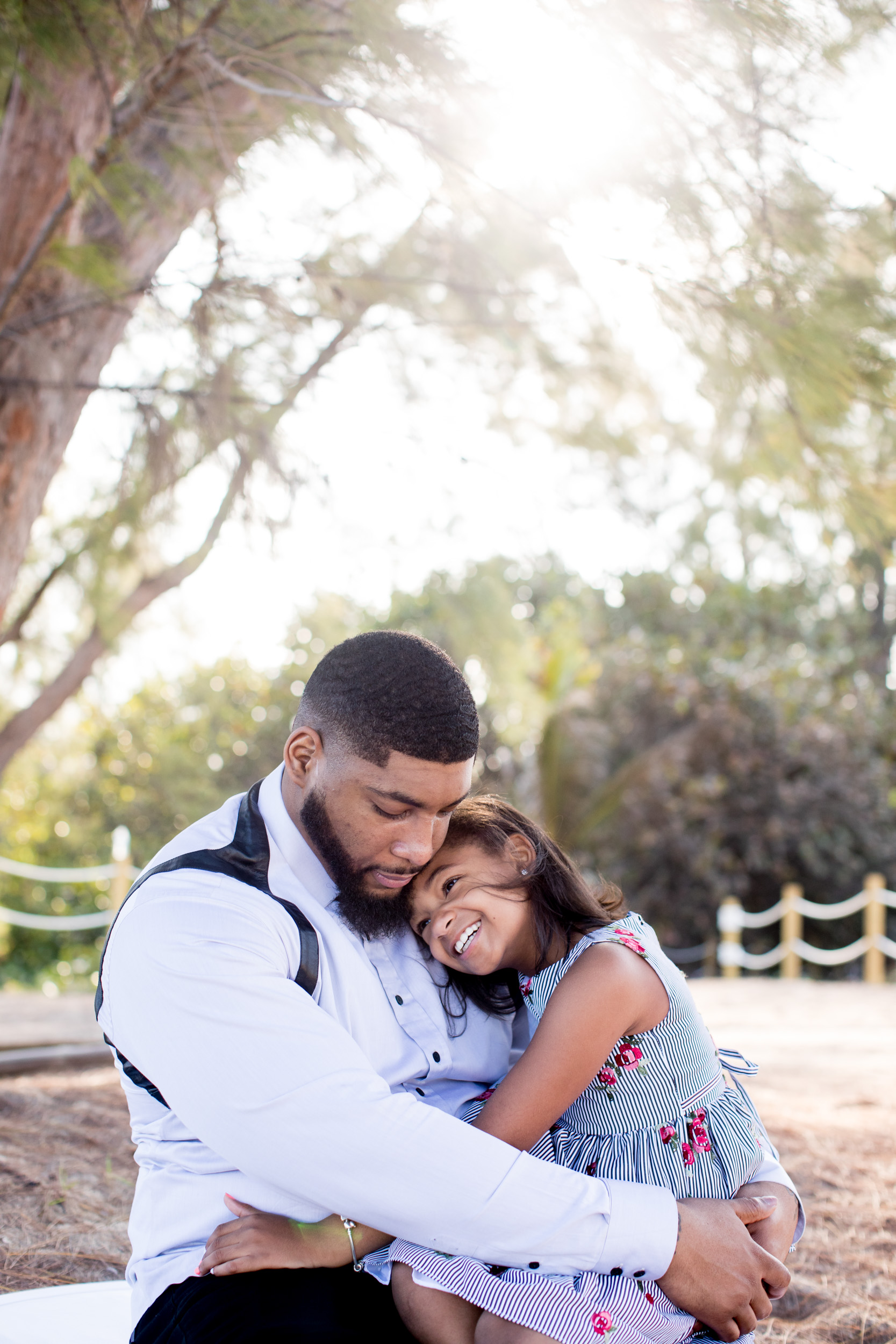 In about two or three months after that, after getting that news, Leah ended up going into remission. I realized that if Leah wouldn’t have gone into remission [during] that first treatment that I was praying so hard, it wouldn’t have had the impact it had. There was still more work we had to do. There were still more people we had to touch. And by trusting in God’s timing, by never giving up and keep pushing forward, we got what we wanted with Leah: being in remission. But we also got to touch a lot of more people’s lives that we wouldn’t have, had she beaten cancer the first treatment.
In about two or three months after that, after getting that news, Leah ended up going into remission. I realized that if Leah wouldn’t have gone into remission [during] that first treatment that I was praying so hard, it wouldn’t have had the impact it had. There was still more work we had to do. There were still more people we had to touch. And by trusting in God’s timing, by never giving up and keep pushing forward, we got what we wanted with Leah: being in remission. But we also got to touch a lot of more people’s lives that we wouldn’t have, had she beaten cancer the first treatment.
She’s doing really well. She’s 3 years, almost 4 years in remission. Of course, with the amount of high-dosage chemo that she received, there’s going to be lingering issues that she has to deal with. But we’ll take those small issues compared to what she had to go through before. But once we hit this 5-year mark, she’ll officially be declared cancer free. Although we already live our life as if she’s cancer free, because I feel like when you when you put your mind in a place where you want to go, your body will soon follow, and the things around you will start to work in your favor and God will start to work in your favor.
“I feel like when you when you put your mind in a place where you want to go, your body will soon follow.” – Devon Still
We’re just really enjoying life and watching her being a normal child and getting the play outside and going to school and not having to be worried about being stuck with needles and things like that.
Showing Others They’re Still in the Game
Narrator: Devon continues to use any means he can to tell others about the impact his relationship with God has had on his life, and on the life of his family. He has just released a book called Still in the Game: Finding the Faith to Tackle Life’s Biggest Challenges.
Devon Still: It’s interesting how this book came about because I never had any plans of writing a book. I wasn’t interested in it.
But when I signed with the Houston Texans after Leah went into remission, I ended up getting hurt where I messed up my foot and I had to get surgery.
My mom came down to Houston to help Asha take care of me. She’s a big fan of Oprah, so she’s always watching Oprah’s shows. I believe she had on Supersoul Sunday. And I woke up on the couch really groggy, and I remember looking at the TV when I woke up and Oprah was interviewing Jack Canfield from Chicken Soup for the Soul. And something about that interview really inspired me to get off the couch and to go into my room and write down all the struggles that I had in my life and how God had prepared me to to overcome those obstacles.
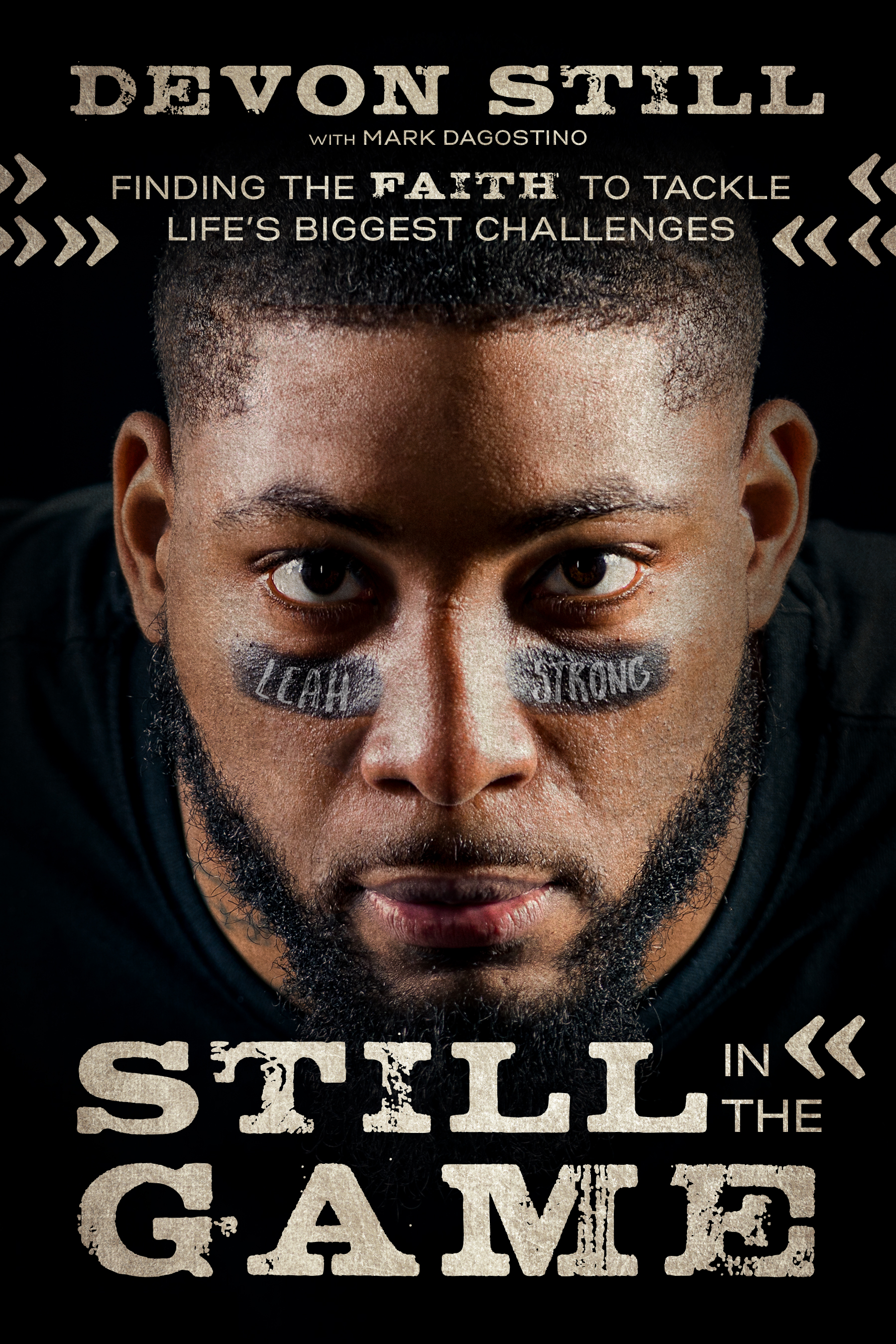
The book is called Still in the Game because I want to show people that no matter what they’re going through, as long as they’re alive they’re still in the game. And I wanted to call myself “the comeback coach” because I want to teach people how to make their comeback. But in my eyes, when I call myself the comeback coach, I’m not the head coach that you see in sports. I look at myself as the assistant coach. I’m just using that God gave me to teach other people because at the end of the day, God is really the head coach and I’m just trying to spread His message of faith.
Life is going to be filled with a lot of struggles. But within those struggles are lessons that will be able to take you to the next level, the lesson that will be able to take you to the place that you say you want to go. So I just really hope that this shapes people’s mindset and shows them that how struggles are necessary in order to grow. Because without pain, we wouldn’t know what sunshine is.
“Life is going to be filled with a lot of struggles. But within those struggles are lessons that will be able to take you to the next level.” – Devon Still
Narrator: You can find Devon’s book Still in the Game at your favorite book retailer today!
Narrator: Stay tuned for our chat with Keni Thomas after a brief message about a beautiful new edition of Jesus Calling.
Narrator: Are you looking to introduce a friend or loved one to the peace that can be found by spending time with God daily? There’s a beautiful new edition of Jesus Calling that makes a gorgeous gift for someone who might be seeking a new perspective for a new year. It’s the same Jesus Calling daily devotional that has inspired over 25 million readers, now updated with a lovely fabric cover and eye-catching foil with feminine floral touches. This elegant new version also features large text and written-out scripture verses with each passage.
For more information about this stunning new edition of Jesus Calling, visit JesusCalling.com/Botanical. That’s JesusCalling.com/botanical. Now, let’s get back to the second half of our program.
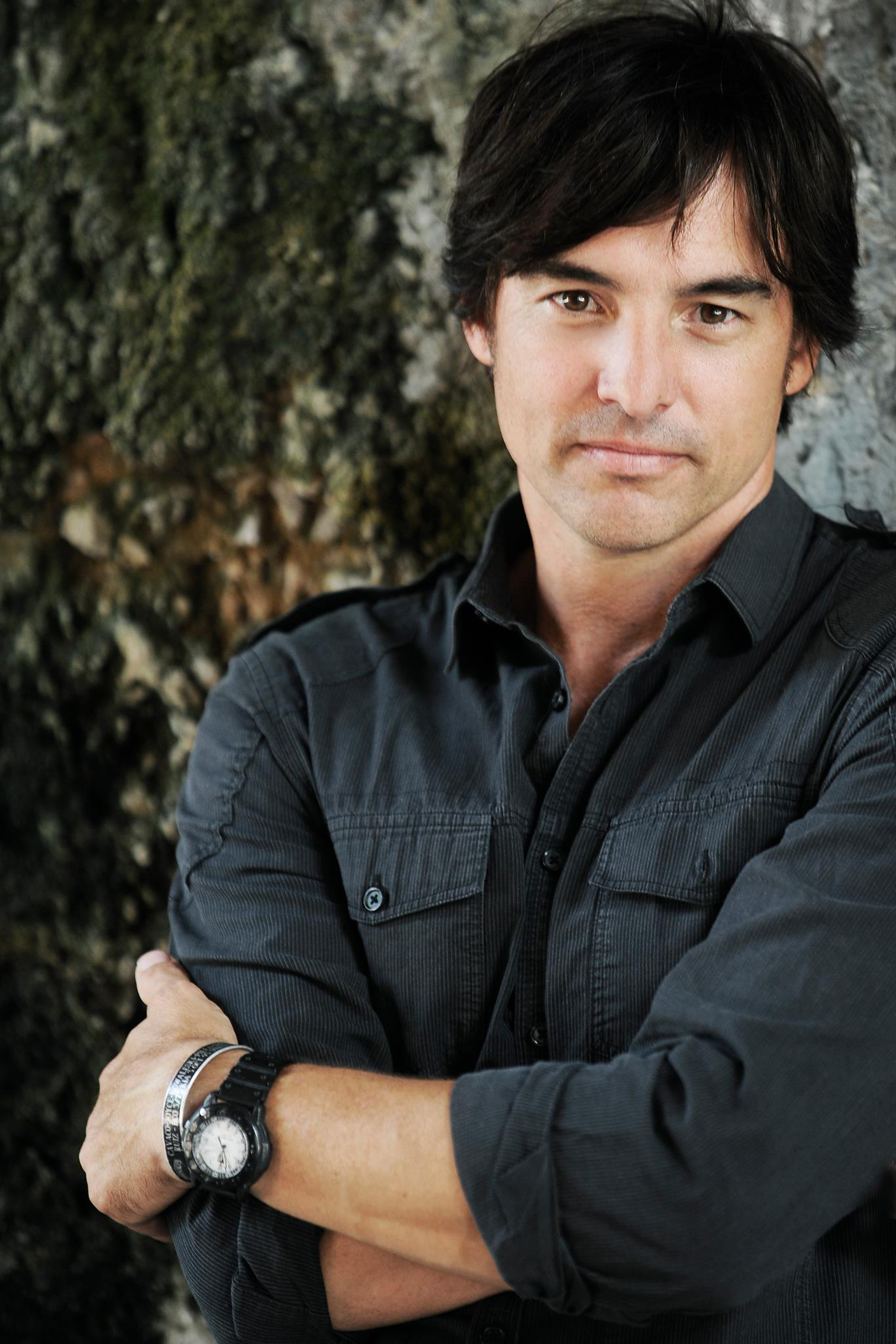 Narrator: Our next guest is country music artist and former Army Ranger, Keni Thomas. As the son of a Vietnam soldier, Keni was impressed with a strong sense of duty to serve in the military. In 1993 he was deployed to Somalia, where he found himself entrenched in the horrific events portrayed in the book and movie Black Hawk Down. Now Keni is a motivational speaker who draws on his military experience to inspire audiences worldwide. He reflects on his growing-up years, about the fateful day in Mogadishu in 1993, and describes the work he does now to help veterans transition back into civilian life, while demonstrating how gratitude can drastically change your perspective.
Narrator: Our next guest is country music artist and former Army Ranger, Keni Thomas. As the son of a Vietnam soldier, Keni was impressed with a strong sense of duty to serve in the military. In 1993 he was deployed to Somalia, where he found himself entrenched in the horrific events portrayed in the book and movie Black Hawk Down. Now Keni is a motivational speaker who draws on his military experience to inspire audiences worldwide. He reflects on his growing-up years, about the fateful day in Mogadishu in 1993, and describes the work he does now to help veterans transition back into civilian life, while demonstrating how gratitude can drastically change your perspective.
Keni Thomas: My name’s Keni Thomas. I grew up in Gainesville, Florida, which is a little college town, [right by the] University of Florida. My mom was a single mom [and had] my sister and I. We grew up in an apartment.
I look back on it. My mom was in her twenties, going to college, working two jobs with two kids. Our family was a victim of . . . you look back on it now, you’re like, Oh I get it. It was the Vietnam War. My dad did two deployments and came back and he . . . their marriage was a casualty of that. But when you’re a kid, you just know you don’t really understand all that
Living Out Black Hawk Down
Well over 90 percent of the people that serve in our nation had someone in their family that served before them. It’s a family business, and it’s not anything that [my dad] pushed on me. In fact, he probably was very hands-off about it. But it was just something you respected.
“Over 90 percent of the people that serve [in the military] in our nation had someone in their family that served before them. It’s a family business.” – Keni Thomas
The first Gulf War was when I enlisted. I was 24. I had just graduated college and the war broke out. I’m like, I should probably go do my part.
I went into the Rangers and that’s because that’s what my dad had done. He was a Ranger in Vietnam. So I kind of sort of knew what they were about.
We were deployed to Mogadishu as part of a Special Operations package in 1993. There was a guy named Aidid. He was a bad man. He was attacking the United Nations food shipments. He started attacking our troops who were guarding the food shipments, and then we were sent in as this posse to go get this guy.
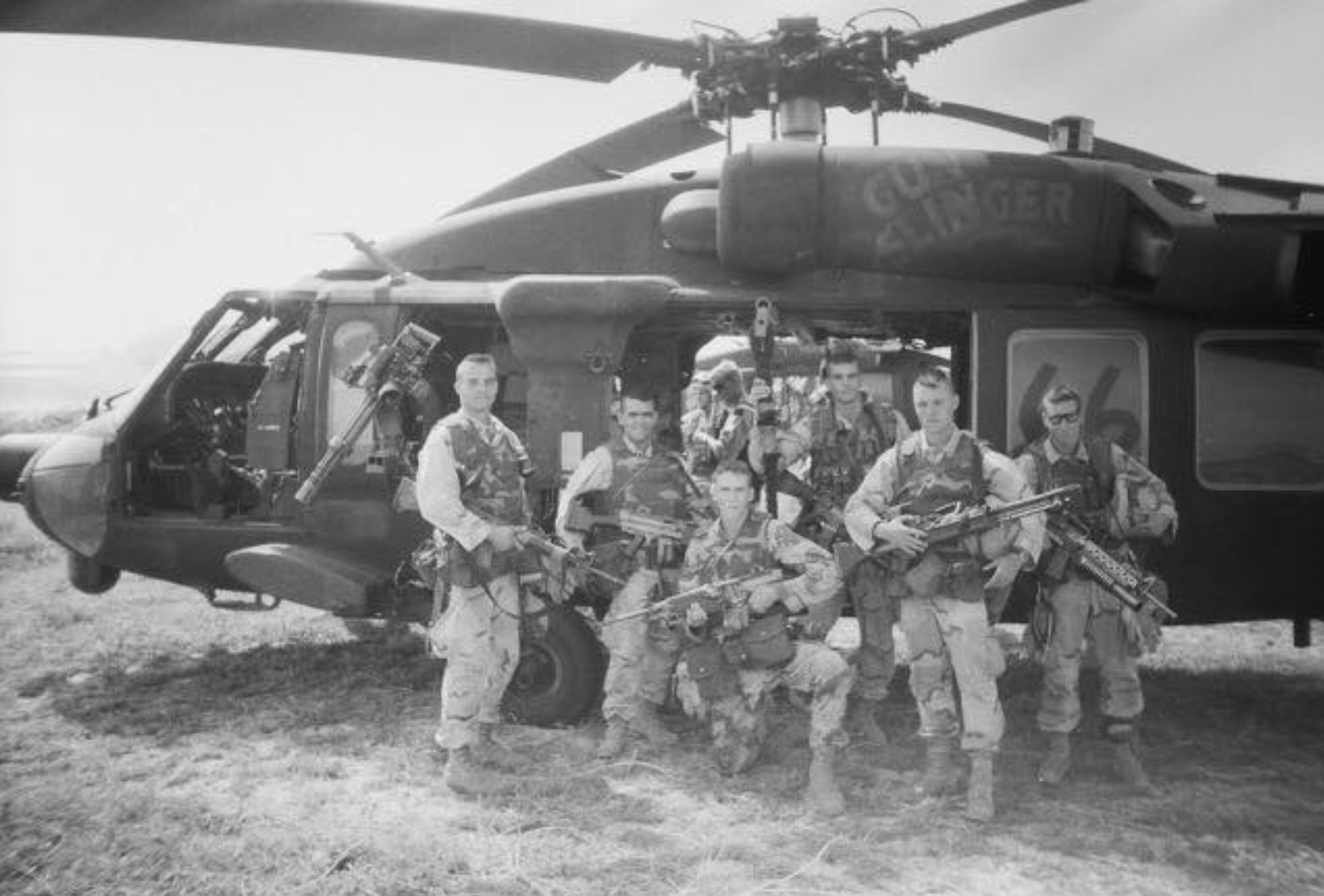 The challenge was that we as America had pulled out of Somalia already. And then we went in under the radar to go get this guy. And he went in hiding, so it proved to be a pretty difficult mission to get him because he knew we were there.
The challenge was that we as America had pulled out of Somalia already. And then we went in under the radar to go get this guy. And he went in hiding, so it proved to be a pretty difficult mission to get him because he knew we were there.
And on this day, the 3rd of October, there was a building in downtown that we knew was a bad part of the town. We knew that a daylight raid was not preferred, but that’s when they were meeting. So we went in and the mission was a success. We got the guys that were in the building that we needed to get.
[Then] the first helicopter got shot down. And that’s when the mission changed.
Now all of us who were on the targeted building, who had stormed the building were now waiting to get out of there. Now we see this bird go down about five blocks away. So the mission changed, we’re going to go secure that crash site, and try and rescue any of the guys that were still alive.
And it just became, you know, we’re fighting the whole city by then. It went through the night. Come the morning time, there were . . . so we knew it was bad, but we just didn’t have any idea. By the time it was done, we had 135 guys on that mission. 78 were wounded, 19 were killed.
It was just a very historic battle that no one knew about it until the movie came out, which was almost 10 years later.
And that’s pretty much what people know me for is that story—it kind of led to everything I do. I got out of the Army, signed a record deal, came up here [to Nashville]. I started writing songs. People found out that I was part of that and a veteran, because I was involved with so many veteran causes. They started, “Hey, tell us more about that. Tell us about the Black Hawk Down thing.” And then I started talking about it and doing luncheons. I think that just sort of grew.
Now I’m all over the country as . . . I really don’t know what the word “keynote” means, but that’s what they call a keynote speaker. So I’m the speaker for all kinds of conferences, and I’ve met all kinds. Left, right, north, south—every industry out there. If it has an association, I’ve probably had a chance to speak for it.
Jesus’ Parting Words: “Take Care of Each Other”
General Patton said that the single most important characteristic in a great soldier is confidence, because it gives him the ability to know that whatever is asked of him, he’s going to be able to pull it off. But mostly it gives you confidence in each other. Because you do so much training together and you live together and you bleed together and then you go and do these missions together.
 Those are your brothers. Those are your family. You know the other person has your back, no matter what. They’re not going to divorce you because it’s not working out. They’re not going to say they can’t come into work today because they don’t feel good. They don’t have something else going on that they’re going to call in and say is more important. They’re not going to bail on you. They’re going to be there. And that gives you confidence that you can go in, that you’re better trained than anything that you’re up against. And so then when the call comes, you know you’re ready.
Those are your brothers. Those are your family. You know the other person has your back, no matter what. They’re not going to divorce you because it’s not working out. They’re not going to say they can’t come into work today because they don’t feel good. They don’t have something else going on that they’re going to call in and say is more important. They’re not going to bail on you. They’re going to be there. And that gives you confidence that you can go in, that you’re better trained than anything that you’re up against. And so then when the call comes, you know you’re ready.
When people start going down, you realize, Okay, wow. If it could happen to him, it could happen to me. And if it happened to me, instead of that switch that normally goes on in most of our lives, which is, Oh my gosh, I got to save myself and look after Number One, it doesn’t. Instead it switches and you go, Okay. Well, I can’t let that happen anybody else.
This is when you see people start doing heroic acts of valor, not because they’re heroes. It’s because they’re just trying to take care of one another. They don’t worry about themselves anymore. It’s completely selfless. And there is no greater love than he who lays down his life for a brother.
“This is when you see people start doing heroic acts of valor, not because they’re heroes. It’s because they’re just trying to take care of one another.” – Keni Thomas
When Jesus had to punch out, He knew He was going. He sits down and He says, “Hey guys, I’m punching out of here. I’ll be back. But until I get back, take care of each other.” That’s what He said. He didn’t give them some sort of long list of things they had to do and checklists and sales goals and PowerPoints. He just said, “Take care of each other.”
They teach you in the Rangers that leadership is setting an example for others to follow. Servant leadership.
People may not get it. That’s why I hear veterans say. “Man, they don’t get it out here in the real world.” No, they don’t. But they want to. And you as somebody who served with the boots on the ground—Coast Guard, Marines, Air Force, Army, Navy—you know what leadership is. You know what it means to take care of one another. You’ve been taught that. You’ve been through hardship.
You’re going to have a leadership challenge. You’re going to figure out here how to teach that to other people. Or you can stay in your own head, and you can tell people that they don’t get it and you can be angry. I don’t know who promised us that it’s all going to be easy and happy and great. It’s not. It’s life. There’s tough parts of it. I mean, the scriptures are pretty clear on it. Jesus was pretty clear on it that the life in general is not easy.
I have a pretty personal relationship with God and Jesus and the Holy Spirit. And it took a minute for me to figure that out. I was one of them, I call them “lazy Christians” who are good at talking about God because everybody talks about God. But I just really wasn’t in touch or in tune with who Jesus was and because I’ve been told all my life, “He died for you. So therefore, you owe Him.” And I’m like, I know 19 guys who died for me. How is that anything special?
The answer came to me pretty clear when He spoke to me. It was, “You know, Keni, it’s true. Those guys did die for you, but they’re gone. And I’m not. I’m still here.”
And I just talked to Him. “Okay. If you want to be part of my life.” Because it was . . . you wish you could say it was the combat and the Ranger and and all that stuff where you had you had a “come to Jesus.” But for me, it was a lost relationship.
An Attitude of Gratitude Can Make a Difference
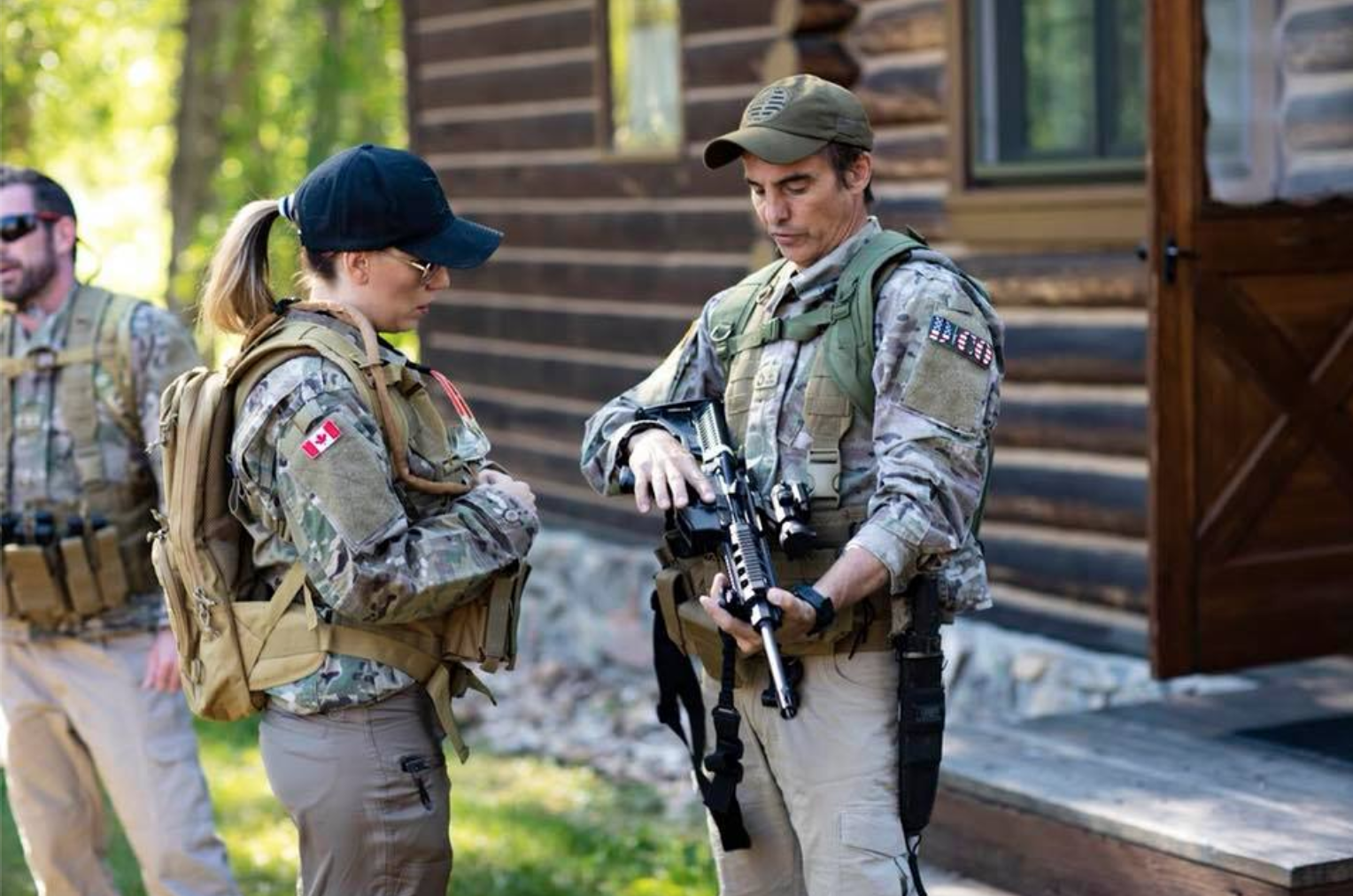 There is a epidemic diagnosis of PTSD in our VA system right now.
There is a epidemic diagnosis of PTSD in our VA system right now.
Something like 80 percent of the people who have PTSD, who have been diagnosed with some sort of traumatic stress never even saw combat but they were deployed. It’s because they don’t have the left and the right anymore. They don’t have that person who’s the absolute.
When you come back from the military, you’re lost when you get out and you’re back here in the real world. Just because you got off an airplane from Afghanistan doesn’t mean you’re home. And so you’re trying to figure out, Who is my left? Who is my right? Where’s my sense of purpose? Where do I fit in? And you’re just lost.
Sometimes our military brothers and sisters are closer to us than our own family, and quite often that’s the case. That’s why we have such a huge divorce rate in the military.
I fell apart, and I found myself just in shambles. And it’s because I’d gotten so far off path and I let the marriage not be God-centered and I stopped being God-centered. Not that I was doing anything crazy—I just wasn’t talking. He wasn’t a part of my life.
What I can’t teach anybody does is how you emotionally handle that. You put it all on the backburner. You stick it on another hard drive. You put it into another box to contain it, but it’s going to come out sooner or later because we’re human beings. We’re spirits. We care. We care that was our friend that got hurt. We wonder if we could have done more. And in the times that all that starts coming out is when you’re back and you have time to process. And then your brain starts doing the things that it does.
And so now what I do, the quiet time that I find is in running. I’m a pilot and I’m up there. I think. I get better reception because I’m at 10,000 feet a lot.
When you start adopting an attitude of gratitude, it’s infectious. And [I] start realizing that most of my time I spend thanking Him for things.
“When you start adopting an attitude of gratitude, it’s infectious.” – Keni Thomas
If you can live where God is centered and you have an attitude of gratitude, your default becomes instead of feeling victimized or, “This isn’t fair,” you start seeing things as gifts and you’re like, “Oh man, thank you.”
This is a passage from Jesus Calling for 17 April.
I am training you in steadiness. Too many things interrupt your awareness of Me. I know that you live in a world of sight and sound, but you must not be a slave to those stimuli. Awareness of Me can continue in all circumstances, no matter what happens. This is the steadiness I desire for you.
Don’t let unexpected events throw you off course. Rather, respond calmly and confidently, remembering that I am with you. As soon as something grabs your attention, talk with Me about it. Thus I share your joys and your problems; I help you cope with whatever is before you. This is how I live in you and work through you. This is the way of Peace.
I think we spent a lot of time in the church talking about problems. I think we spend a lot of time on TV talking about what’s jacked up. I think we spent a lot of time complaining and griping. I’m not saying cover it up with canned positivity and that it isn’t happening. But I also think we need to put a little bit more emphasis on sharing our joys as well as our problems.
The story of Black Hawk Down, it took me about 10 years to figure out that that wasn’t a curse.
There isn’t a day that I take for granted. And that’s true. Somewhere along the line, that gift’s been handed to me where I understand that, you know, by all accounts I probably shouldn’t still be around. I’m not going to waste it. And that’s by the grace of God.
Narrator: To learn more about Keni and the veteran’s organization he works with called Stronger Families, please visit kenithomas.com.
Narrator: Next time on the Jesus Calling Podcast, we talk with professional surfer Bethany Hamilton. A surfing prodigy at just 13 years old, Bethany’s future in surfing was promising, but in one tragic incident, her life was forever altered by a shark attack that resulted in the loss of her left arm. With faith and courage, she refused to be a victim. Her story of survival and her return to competitive surfing has inspired millions.
Bethany Hamilton: Once I started to see that encouragement and inspiration that was being put on other people’s lives by telling my story, I realized, Okay, God, this is what you’re up to. You want to show me your story more than you want to share mine.
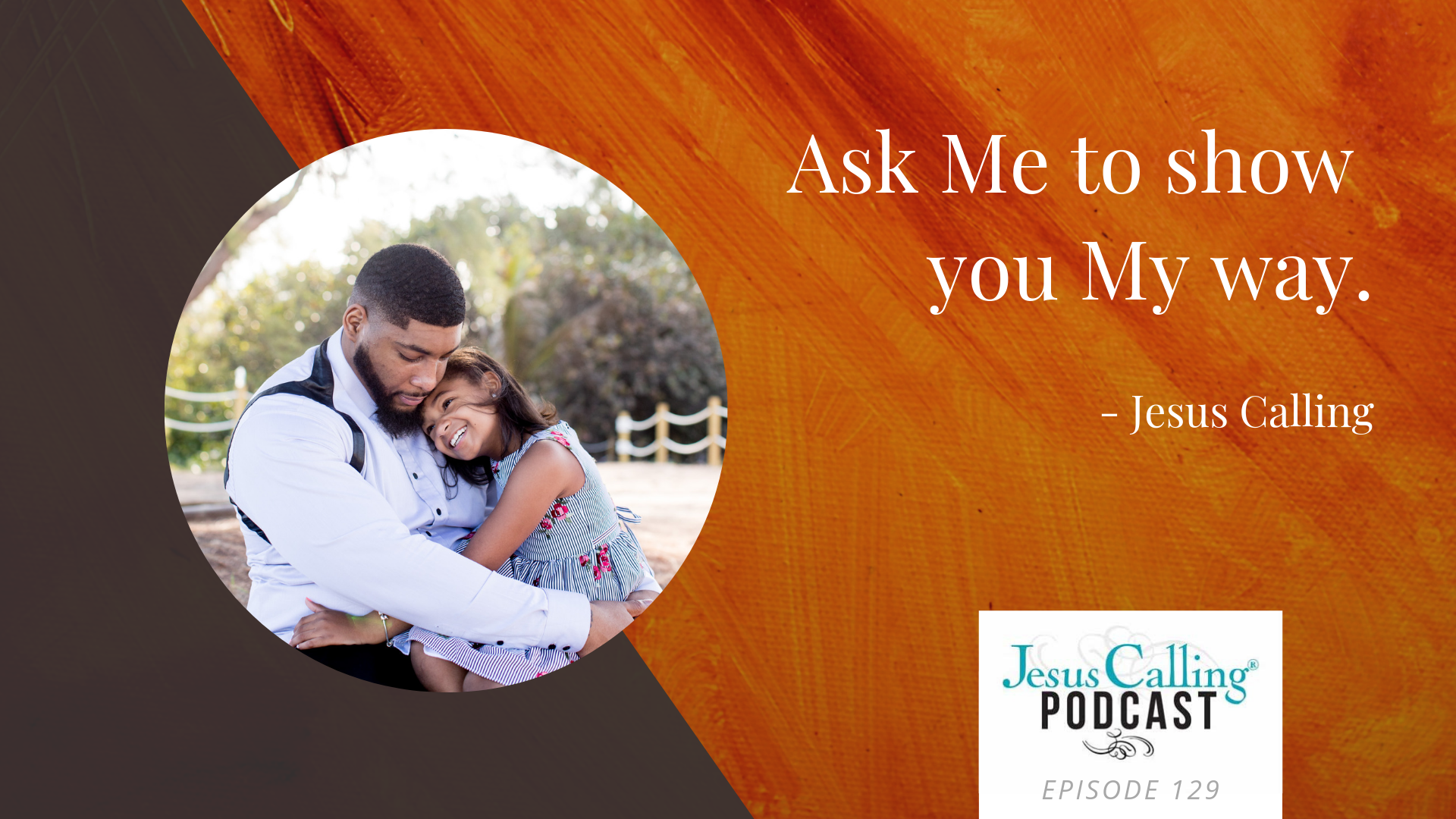
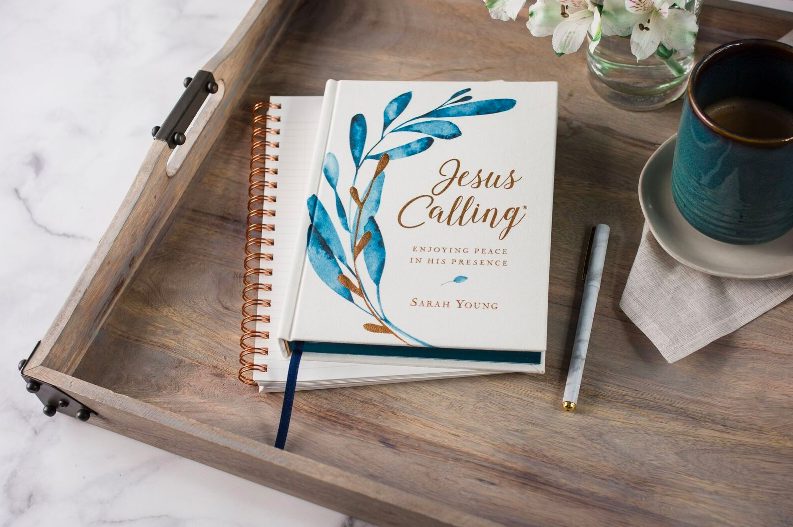

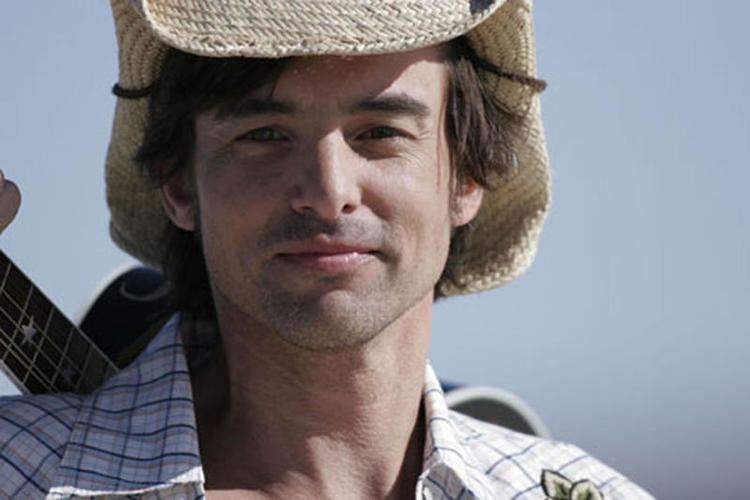


2 thoughts on “Faith to Tackle Life’s Biggest Challenges: Devon Still and Keni Thomas”
Comments are closed.